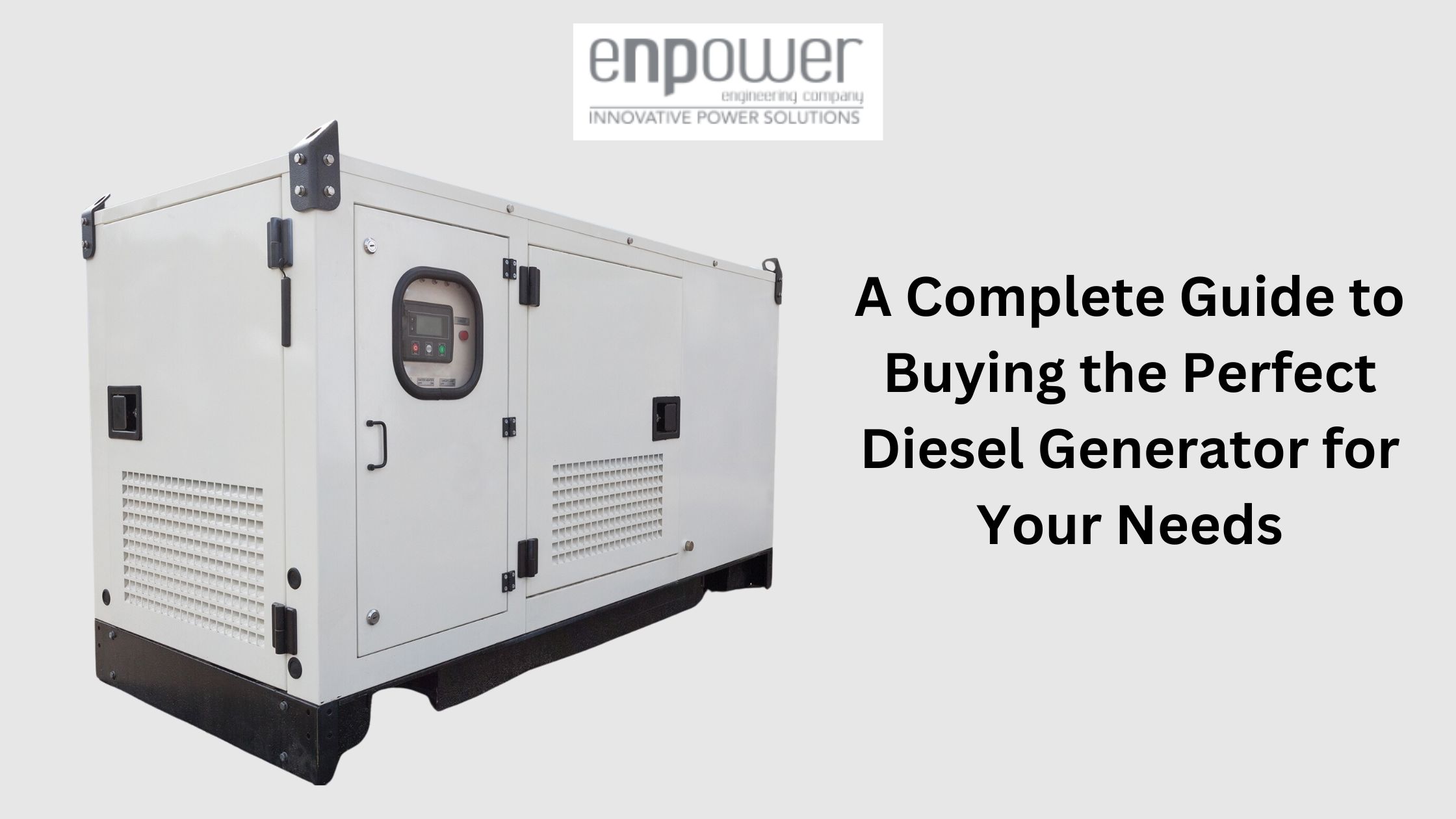Choosing the right diesel generator is crucial for ensuring reliable power supply, whether for business, emergency backup, or remote operations. This guide will help you navigate the key factors to consider when purchasing a diesel generator, ensuring you make an informed decision that meets your specific needs.
Understanding Your Power Needs
Assess Your Power Requirements
Before purchasing a diesel generator, it is essential to assess your power needs accurately. Calculate the total wattage required by summing up the wattage of all appliances and equipment that will be powered by the generator. Include a safety margin of about 20-30% to accommodate any additional load and prevent overloading.
Consider Power Type and Usage
Different applications require different types of power. Determine if you need a generator for continuous power supply, backup during outages, or temporary use. For continuous power, a high-capacity generator with a durable build is necessary, while a smaller unit may suffice for backup or short-term use.
Types of Diesel Generators
Standby Generators
Standby generators are designed for automatic activation during power outages. They are permanently installed and provide a seamless transition to backup power. Ideal for critical applications such as hospitals or data centers, these generators offer reliability and high capacity.
Portable Generators
Portable generators offer flexibility and can be moved as needed. They are suitable for temporary power needs and smaller applications. While they are less powerful than standby generators, they provide convenience and ease of use for various scenarios.
Industrial Generators
Industrial diesel generators are built for heavy-duty applications and large power demands. These generators are used in industries, construction sites, and large facilities. They are robust, efficient, and designed to handle continuous, high-load operations.
Key Features to Consider
Fuel Efficiency
Fuel efficiency is a critical factor in reducing operating costs. Look for generators with high fuel efficiency ratings to ensure that you get the most out of every gallon of diesel. Consider the generator’s consumption rate and the size of the fuel tank for longer operation periods.
Noise Level
Diesel generators can be noisy, so consider the noise level if the generator will be used in a residential or noise-sensitive area. Look for models designed with noise reduction features or consider placing the generator in an enclosed space with proper ventilation to minimize noise impact.
Runtime and Capacity
Evaluate the generator’s runtime on a full tank and its load capacity. A longer runtime ensures fewer refueling stops, which is crucial for continuous operations. Choose a generator with a capacity that meets your power needs without exceeding them to avoid unnecessary expenses.
Durability and Build Quality
The durability and build quality of a diesel generator impact its performance and lifespan. Look for generators made with high-quality materials and those that comply with industry standards. Ensure the generator is designed to withstand environmental conditions if used outdoors.
Maintenance and Support
Regular Maintenance
Proper maintenance is essential for the longevity and reliability of your diesel generator. Choose a model from a reputable brand that offers comprehensive maintenance and support services. Regularly scheduled maintenance, including oil changes and filter replacements, will keep your generator running smoothly.
Warranty and Service
Check the warranty offered by the manufacturer or dealer. A robust warranty ensures that you are covered for repairs or replacements if needed. Additionally, verify the availability of service centers and parts to address any issues that may arise.
Budget Considerations
Initial Cost vs. Long-Term Savings
While the initial cost of a diesel generator is a significant factor, consider the long-term savings in fuel efficiency and maintenance. A higher upfront investment in a quality generator may result in lower operating costs and better performance over time.
Financing Options
Explore financing options if the cost of purchasing a diesel generator is a concern. Many suppliers offer leasing or financing plans that can make the purchase more manageable. Assess these options based on your budget and financial situation.
Conclusion
Purchasing the right diesel generator involves assessing your power needs, understanding the types of generators available, and considering key features such as fuel efficiency, noise level, and durability.
Proper maintenance, support, and budget considerations also play a crucial role in ensuring you get the best value and performance from your investment. By following these guidelines, you can select a diesel generator that meets your needs and provides reliable power when you need it most.
Frequently Asked Questions (FAQs)
What size diesel generator do I need?
The size of the diesel generator depends on your power requirements. Calculate the total wattage needed and add a safety margin of 20-30% to determine the appropriate size.
How often should I maintain my diesel generator?
Regular maintenance is essential for optimal performance. Perform routine checks every 100-150 hours of operation or as recommended by the manufacturer. This includes oil changes, filter replacements, and inspecting fuel levels.
Can a diesel generator be used for both residential and commercial purposes?
Yes, diesel generators can be used for both residential and commercial purposes. Choose the appropriate type and size based on your specific needs and application.
How long can a diesel generator run continuously?
The runtime of a diesel generator depends on the fuel tank size and load capacity. Some generators can run for 8-24 hours on a full tank, while others may offer extended runtimes for continuous operation.
Are there any environmental considerations with diesel generators?
Diesel generators produce emissions that can impact the environment. Look for models that comply with environmental regulations and consider implementing measures to minimize emissions and environmental impact.
What is the difference between standby and portable diesel generators?
Standby generators are permanently installed and automatically activated during power outages, making them suitable for critical applications. Portable generators are movable and ideal for temporary power needs and smaller applications.


